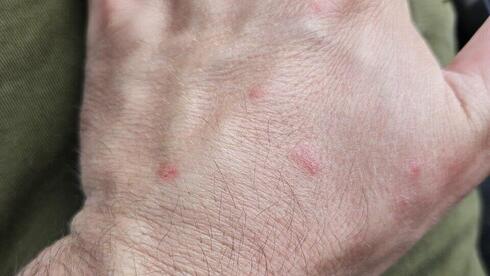The complaints have come from soldiers in the Golani and Kfir brigades, along with reservists and other units holding temporary fortifications known as magananim. The Israel Defense Forces seized the structures, many of them damaged Gazan buildings, during Operation Gideon’s Chariots A. They are primarily located in central and southern Gaza, though troops in the Zeitoun neighborhood and Jabaliya, in the north, have also reported the problem.
“Golani and Kfir regulars have been suffering quietly for weeks,” said an officer in the 11th Reserve Brigade. “The itching is worst at night, when we’re supposed to sleep — usually on the floor, on mattresses already infested. Even those who sleep on beds suffer, because the bedbugs spread through uniforms and sleeping bags. With no showers, only wipes, we wear the same sweaty clothes all the time.”
Families describe deteriorating conditions. The father of a soldier in Kfir’s Nachshon Battalion said his son tried to conceal the bites until he saw them during a break. “At first they were told these posts were temporary, for just a few weeks and for the hostages’ sake. But they’ve been there permanently since May, living in filth, with their own waste just a few feet away,” he said. “There’s no justification for endangering their health like this, alongside stray cats and dogs that can spread disease.”
Soldiers told relatives they envied troops based along the Philadelphi corridor and parts of the Beitour route, where the army has established fortified forward operating bases with chemical toilets, showers, air-conditioned trailers and other facilities. “They were promised the same, but every time officers say they’re waiting for budget approval,” the father said.
Over the past year, the army has spent tens of millions of shekels building permanent positions in Gaza’s buffer zone and along the border with Egypt. The makeshift magananim, however, were intended only for short-term use.
The IDF had planned to withdraw from the outposts in Khan Younis as part of a hostage deal, but with negotiations repeatedly stalling, soldiers have been ordered to continue holding the area. “It’s legitimate to leave forces in a magan, where conditions are always difficult, but only temporarily, during an offensive,” a Southern Command officer said. “Not for static defense as in Khan Younis now. Until a decision is made, we’re providing air conditioners, fans, generators, mosquito repellent and other supplies. But in the end, it’s up to commanders to maintain basic cleanliness.”
In a statement, the IDF Spokesperson’s Unit said: “The claim of a bedbug outbreak in the magananim is not familiar to us. Still, it will be reviewed again with the relevant units to ensure the soldiers’ welfare. Pest control visits were carried out, with no evidence of bedbugs found, though preventive treatment was applied. The IDF works constantly to improve soldiers’ conditions in the operational environment, subject to the situation. Each case is handled individually. The program to formalize permanent posts is advancing according to operational considerations.”

